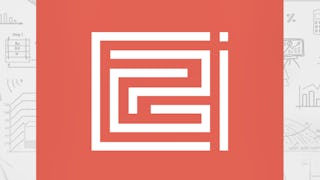Filter by
SubjectRequired
LanguageRequired
The language used throughout the course, in both instruction and assessments.
Learning ProductRequired
LevelRequired
DurationRequired
SkillsRequired
SubtitlesRequired
EducatorRequired
Explore the Biomedical Engineering Course Catalog
 Status: Free Trial
Status: Free TrialSkills you'll gain: Requirements Elicitation, Business Analysis, Process Analysis, Requirements Analysis, Digital Transformation, Business Process, Gap Analysis, Business Requirements, Business Transformation, Systems Analysis, Stakeholder Engagement, Data-Driven Decision-Making, Stakeholder Communications, Project Management, Change Management
 Status: Free Trial
Status: Free TrialRice University
Skills you'll gain: Environment, Environmental Science, Life Sciences, Environmental Issue, Environment and Resource Management, Biology, Demography, Natural Resource Management, Estimation, Taxonomy, Experimentation, Data Collection, Research Methodologies
 Status: Free Trial
Status: Free TrialUniversity of Alberta
Skills you'll gain: Sprint Retrospectives, Scrum (Software Development), Software Technical Review, Code Review, Agile Project Management, Software Quality Assurance, Agile Methodology, User Story, Debugging, Issue Tracking, Requirements Analysis, Usability Testing, User Research, Data-Driven Decision-Making
 Status: Free Trial
Status: Free TrialUniversity of Michigan
Skills you'll gain: Nutrition and Diet, Product Lifecycle Management, Product Development, Food and Beverage, Product Improvement, Environment, Health Assessment, Health Disparities, Sustainability Reporting, Environmental Engineering, Environmental Social And Corporate Governance (ESG), Product Design, Environmental Science, Environmental Management Systems, Public Health, Environmental Monitoring, Chemistry, Risk Analysis, Pollution Prevention, Personal Care
 Status: Free Trial
Status: Free TrialGoogle Cloud
Skills you'll gain: Prompt Engineering, Application Deployment, Cloud Applications, Google Cloud Platform, Cloud Development, Cloud Infrastructure, Kubernetes, Identity and Access Management, Virtual Machines, Cloud Storage, Cloud API, Infrastructure As A Service (IaaS), Cloud Services, Generative AI, Data Store, Application Development, Containerization, Performance Tuning, Authentications, Serverless Computing
 Status: Free Trial
Status: Free TrialUniversidad de los Andes
Skills you'll gain: Feasibility Studies, Project Management Life Cycle, Project Portfolio Management, Program Management, Strategic Planning, Project Management, Business Planning, Financial Analysis, Engineering Management, Complex Problem Solving, Project Finance, Project Risk Management, Cost Benefit Analysis, Risk Analysis
 Status: Free Trial
Status: Free TrialUniversity of Toronto
Skills you'll gain: Spatial Analysis, Geographic Information Systems, Geospatial Mapping, ArcGIS, Data Visualization, Data Compilation, Data Mapping, Data Storytelling, Metadata Management, Data Integration, Data Management

University of Copenhagen
Skills you'll gain: Epidemiology, Pollution Prevention, Public Health, Environment Health And Safety, Health Disparities, Environmental Policy, Environmental Science, Environmental Monitoring, Health Assessment, Respiratory Care, Chronic Diseases, Mitigation, Vulnerability

Universidad Austral
Skills you'll gain: Environmental Science, Chemistry, Biology, Environment, Data Analysis, Environmental Engineering, Physical Science, Life Sciences, Biochemistry, Statistical Analysis, Probability & Statistics, Physics
 Status: Free
Status: FreeCoursera Project Network
Skills you'll gain: Simulation and Simulation Software, Engineering Analysis, Engineering, Prototyping, Computer-Aided Design, Cloud Computing
 Status: Free Trial
Status: Free TrialDuke University
Skills you'll gain: Prompt Engineering, Databricks, Large Language Modeling, Generative AI, Performance Analysis, Apache Airflow, Workflow Management, Data Lakes, ChatGPT, Extract, Transform, Load, OpenAI, AWS SageMaker, Performance Tuning, Scalability, Dataflow, Data Transformation, Data Infrastructure, Microsoft Azure, MLOps (Machine Learning Operations), Natural Language Processing
 Status: Free Trial
Status: Free TrialSkills you'll gain: Large Language Modeling, Generative AI, PyTorch (Machine Learning Library), Text Mining, Natural Language Processing, Artificial Intelligence and Machine Learning (AI/ML), Artificial Neural Networks, Data Processing
Biomedical Engineering learners also search
In summary, here are 10 of our most popular biomedical engineering courses
- Introduction to Business Analysis: IBM
- Introduction to Biology: Ecology: Rice University
- Reviews & Metrics for Software Improvements: University of Alberta
- Healthy and Sustainable Foods and Products: University of Michigan
- Developing Applications with Google Cloud 日本語版: Google Cloud
- Formulación y evaluación de proyectos complejos: Universidad de los Andes
- GIS, Mapping, and Spatial Analysis Capstone: University of Toronto
- Air Pollution – a Global Threat to our Health: University of Copenhagen
- Conceptos base para el estudio del medio ambiente: Universidad Austral
- Computational Fluid Mechanics - Airflow Around a Spoiler: Coursera Project Network










